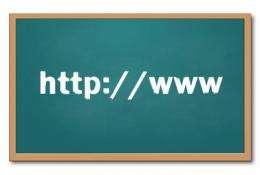Arizona should explore its digital learning potential

Like most states Arizona still has a “digital divide” to close, but it also boasts an overall hospitable environment for digital learning, according to a new report co-produced by the Center for the Future of Arizona and Morrison Institute for Public Policy.
Digital Learning: How to Enhance the Learning of Any Child, at Any Time, and in Any Place – posted on arizonafuture.org and morrisoninstitute.asu.edu – is an 18-page report that serves as both a primer and a gauge for digital learning in Arizona.
As the report’s executive summary notes: “Digital learning is more than a technological method of delivery. It is a collection of teaching tools and strategies designed to expand the learning and discovery environment of traditional brick-and-mortar K-12 schools. Its potential to impact education stems from its flexibility (time, place and pace), its ability to help guide and shape the learning experience of students, and its capacity to create a personalized learning and discovery experience for each student.”
The report was co-authored by Sybil Francis, the executive director of the Center for the Future of Arizona, and C.J. Eisenbarth Hager, a senior policy analyst at ASU’s Morrison Institute.
“Digital learning is not just about bringing technology to the classroom,” Francis said. “Digital learning has the potential to transform the teaching, learning and discovery process as profoundly as digital media have transformed the way we work, play and communicate. Whether or not it lives up to this promise depends on how we go about integrating digital learning into the classroom. These are the kinds of questions and issues we focus on in this report. Quality and accessibility are two key components of the equation.”
The report is expected to serve as a catalyst for continued and expanded dialogue concerning the possibilities and potential of digital learning in Arizona.
“At the national level, there’s a lot of dialogue about how digital learning can transform our public education system,” Eisenbarth Hager said. “National organizations have ranked Arizona, along with the other states, on policies that affect digital learning. Meanwhile, many Arizona school districts and charters are moving ahead with innovative digital learning agendas.”
“What has been missing is an open discussion about digital learning at the state level. With this report, we want to get that discussion rolling. There are a number of policies that the state can explore in order to make sure districts have a barrier-free environment, yet still have some guarantee about the quality of education our kids will receive. Our report lays out some of these issues and encourages a public dialogue,” she said.
The report also notes that digital learning should not be viewed as a panacea or replacement of brick-and-mortar schools, with a blended variety of digital learning often the preferred method. There also is the digital divide in Arizona between many urban and rural schools, as well as upper- and lower-income districts and students, that Arizona must address.
Included in the report are details of “five critical elements of a digital learning agenda” for Arizona:
• systems-level changes for more personalized educational experiences for students;
• issues of quality in digital content and teaching;
• necessary fixes to the system that make digital learning more accessible;
• the importance of supporting an adequate infrastructure;
• and the creation of a Digital Learning Center for Arizona to provide a centralized source of information and support for digital learning, especially at the school level.
Provided by Arizona State University



















